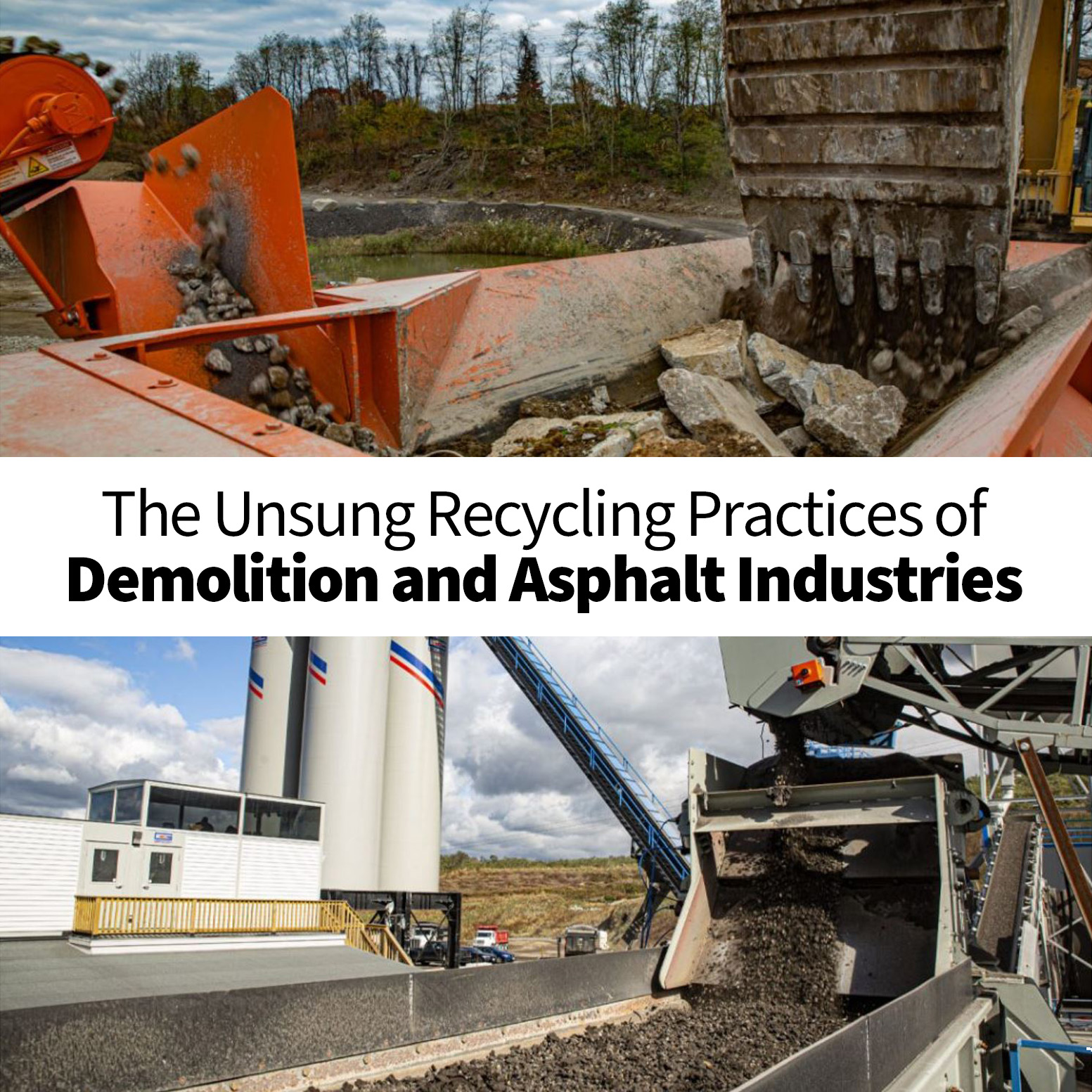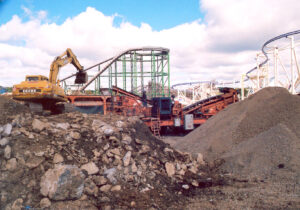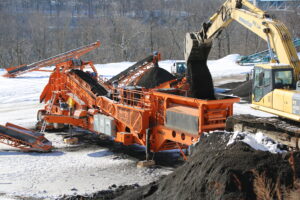The Unsung Recycling Practices of Demolition and Asphalt Industries

The Unsung Recycling Practices of Demolition and Asphalt Industries
In an era where the importance of recycling metals, glass, paper, cardboard, and more, are preached upon as early as elementary school, there are major industries that are constantly underpraised in their recycling recognition: the demolition, concrete crushing, and asphalt crushing industries. Those industries play a crucial role in urban development and infrastructure, but their activities can have a significant impact on the environment. Today, we’ll sing the praises of recycling in these industries and how it contributes to a more sustainable and eco-friendly future.

Recycling in the Demolition and Concrete Crushing Industry
Demolition involves the dismantling and removal of structures, generating large quantities of concrete and steel waste. Instead of sending these materials to landfills, many companies now employ advanced crushing equipment to process and recycle them. Concrete can be crushed into aggregate, which can be used as a base material for new construction or as a component in the production of new concrete. Similarly, steel reinforcement can be recycled and reused, reducing the demand for new resources. According to the United States Geological Survey, “The bulk of the aggregates recycled from concrete—an estimated 68 percent—is used as road base. The remainder is used for new concrete mixes (6 percent), asphalt hot mixes (9 percent), high-value riprap (3 percent), low-value products like general fill (7 percent), and other (7 percent).”

Recycling in the Asphalt Industry
Asphalt, a common material in road construction, can be recycled through asphalt crushing. Traditional methods often involved removing old asphalt and disposing of it in landfills. However, modern crushing equipment allows for the efficient processing of old asphalt, turning it into recycled asphalt pavement (RAP). RAP can be mixed with new asphalt to create a sustainable and cost-effective paving material. This not only conserves natural resources but also reduces the energy required to produce new asphalt. According to the Federal Highway Administration, “U.S. Environmental Protection Agency estimated that more than 90 million tons of asphalt pavement were reclaimed (i.e., converted into material suited for use) every year, and over 80 percent of RAP was recycled, making asphalt the most frequently recycled material.”

Environmental Benefits
The environmental benefits of recycling in these industries are multifaceted. By diverting construction waste from landfills, recycling helps to reduce the environmental impact of these activities. It conserves natural resources, lowers energy consumption, and minimizes greenhouse gas emissions associated with the production of new materials. Furthermore, recycling in demolition, concrete, and asphalt crushing contributes to a circular economy, where materials are reused and repurposed, creating a more sustainable and resilient construction industry.

Starting the Praise Today
Recycling in the demolition, concrete, and asphalt industries is already a substantial practice yet is not acknowledged and praised by the public. As these industries continue to evolve by integrating recycling into standard application, their impact in the world of recycling practices will come to prominence.


